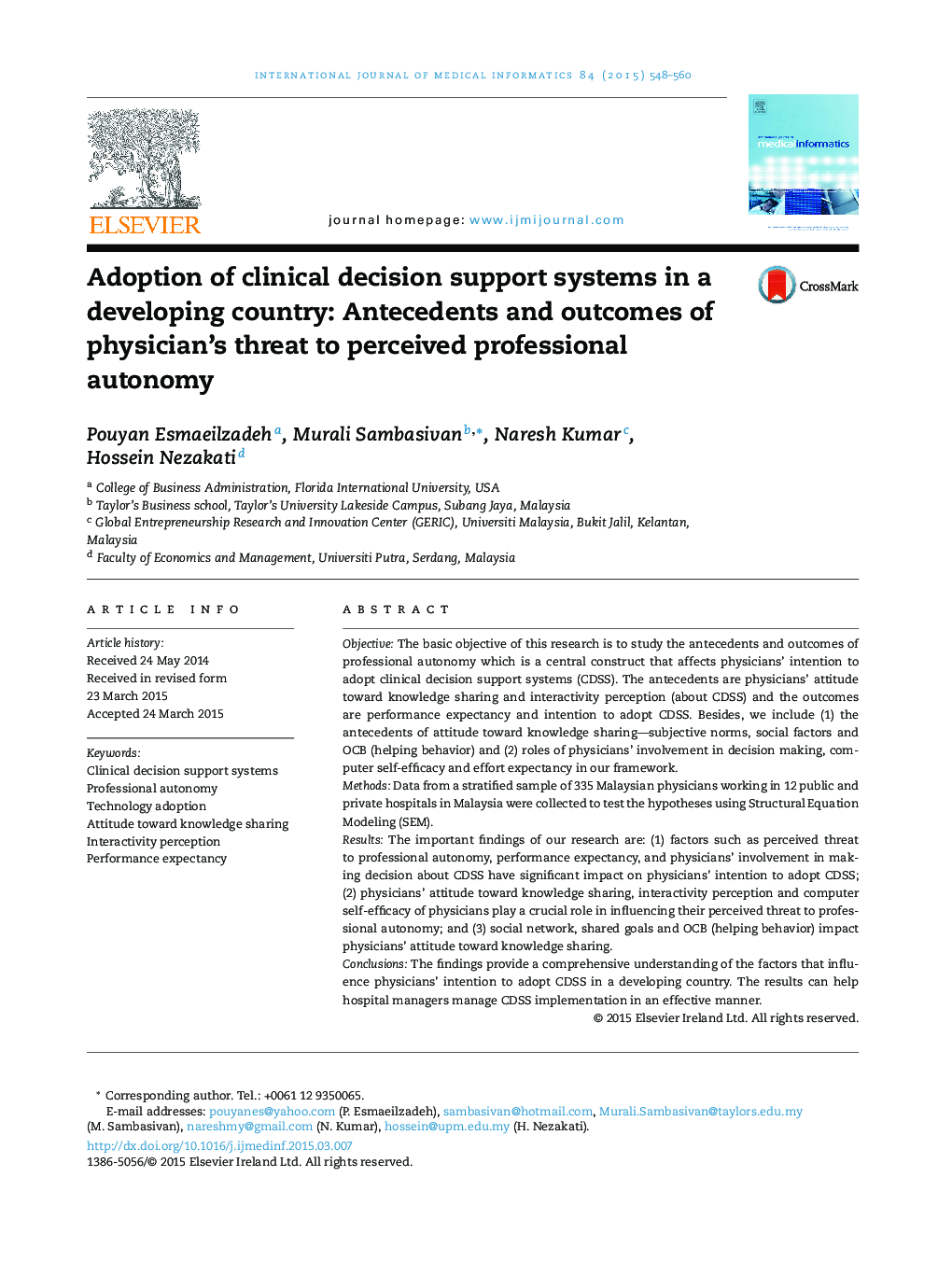| کد مقاله | کد نشریه | سال انتشار | مقاله انگلیسی | نسخه تمام متن |
|---|---|---|---|---|
| 516112 | 1449108 | 2015 | 13 صفحه PDF | دانلود رایگان |
• We model the antecedents and outcomes of perceived threat to professional autonomy.
• We develop an integrated framework and test in a developing country.
• Decreasing perceived threat can increase adoption of information technology systems.
• Involvement in decision making and performance expectancy can increase adoption.
• Attitude to knowledge sharing and perceived interactivity decreases threat.
ObjectiveThe basic objective of this research is to study the antecedents and outcomes of professional autonomy which is a central construct that affects physicians’ intention to adopt clinical decision support systems (CDSS). The antecedents are physicians’ attitude toward knowledge sharing and interactivity perception (about CDSS) and the outcomes are performance expectancy and intention to adopt CDSS. Besides, we include (1) the antecedents of attitude toward knowledge sharing—subjective norms, social factors and OCB (helping behavior) and (2) roles of physicians’ involvement in decision making, computer self-efficacy and effort expectancy in our framework.MethodsData from a stratified sample of 335 Malaysian physicians working in 12 public and private hospitals in Malaysia were collected to test the hypotheses using Structural Equation Modeling (SEM).ResultsThe important findings of our research are: (1) factors such as perceived threat to professional autonomy, performance expectancy, and physicians’ involvement in making decision about CDSS have significant impact on physicians’ intention to adopt CDSS; (2) physicians’ attitude toward knowledge sharing, interactivity perception and computer self-efficacy of physicians play a crucial role in influencing their perceived threat to professional autonomy; and (3) social network, shared goals and OCB (helping behavior) impact physicians’ attitude toward knowledge sharing.ConclusionsThe findings provide a comprehensive understanding of the factors that influence physicians’ intention to adopt CDSS in a developing country. The results can help hospital managers manage CDSS implementation in an effective manner.
Journal: International Journal of Medical Informatics - Volume 84, Issue 8, August 2015, Pages 548–560
